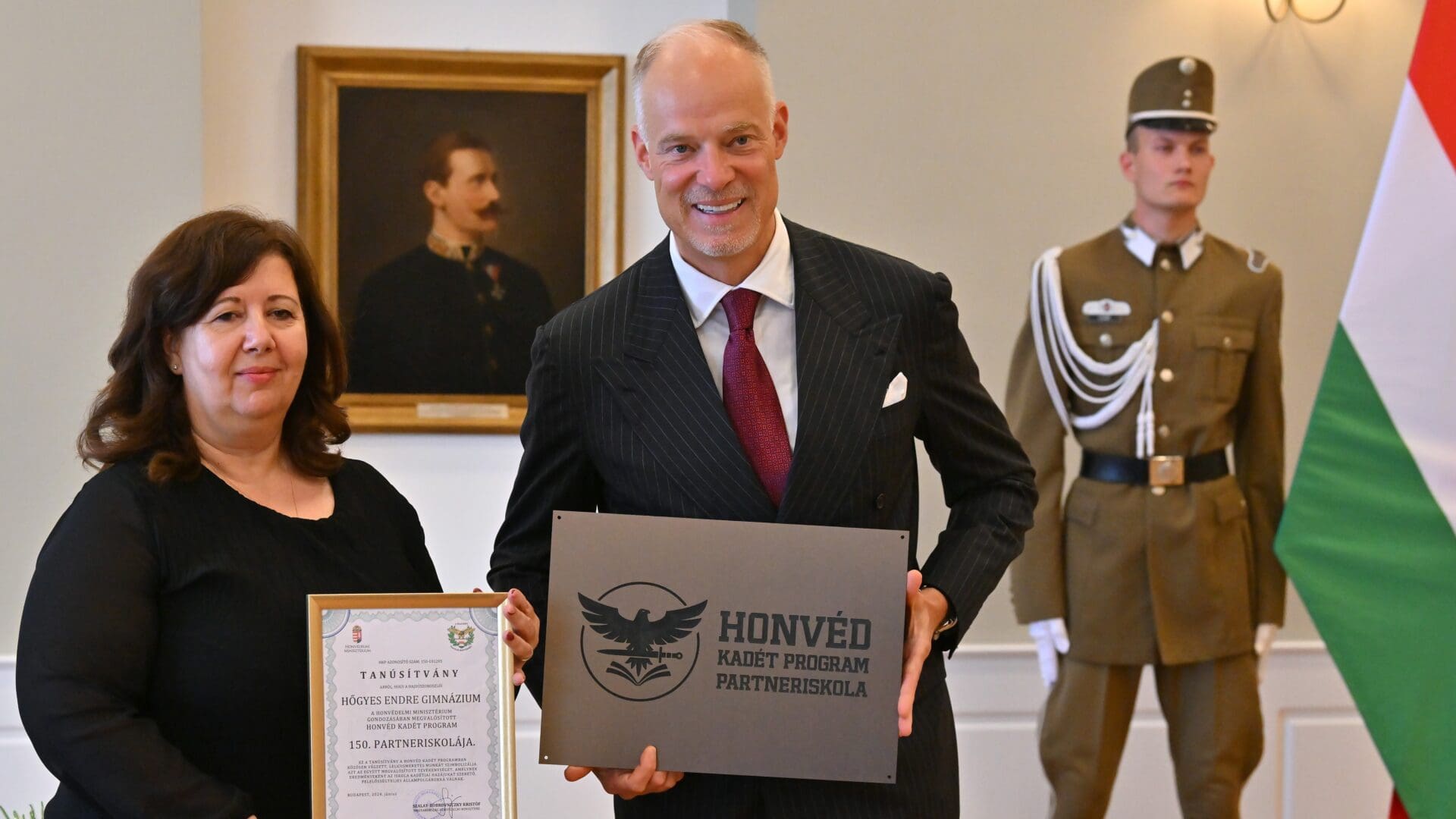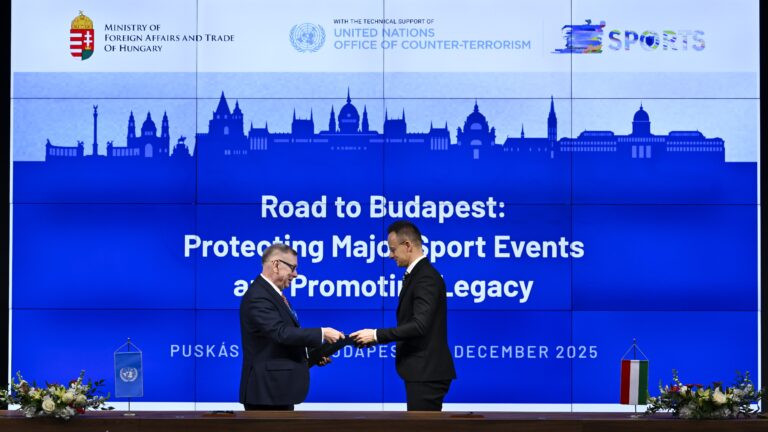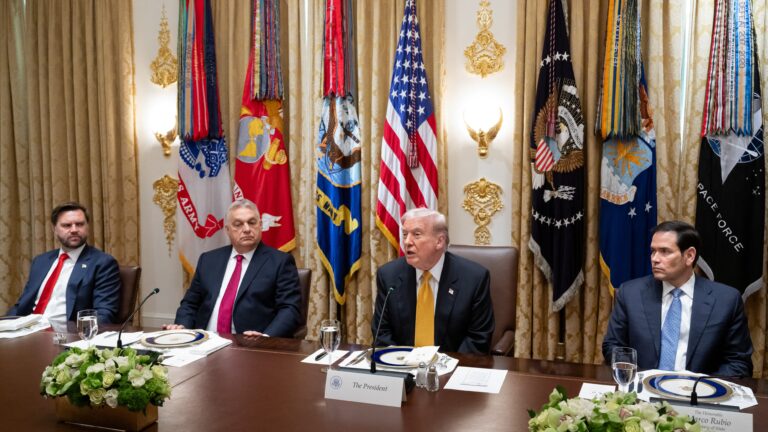From September, 9,500 Hungarian youths will have the opportunity to get closely acquainted with the profession of defence through the Defence Forces Cadet Programme, Defence Minister Kristóf Szalay-Bobrovniczky announced at the signing of a cooperation agreement with the 150th school to join the cadet programme on Thursday in Budapest.
The Cadet Programme is one of the most successful programmes in the defence sector, the minister stressed. Quoting Prime Minister Viktor Orbán, he noted it is not what kind of world we leave to our children that matters, but what kind of children we leave to the world. ’ The minister explained that the young people who join the programme have decided to continue their studies while also learning about the basics of defence service through the subject of basic defence knowledge and voluntarily joining the great family of defence.
Szalay-Bobrovniczky said that the young people joining the Cadet Programme will carry with them throughout their lives the values acquired during the training, such as unity, comradeship, and patriotism, regardless of whether they choose a military career later on. Wherever they end up in life, these values will be significant for them and for society, he noted, adding that the programme helps young people to place the community above their individual interests. The minister also noted that the military profession is extremely noble, and those who take the oath commit to defending the homeland even at the cost of their lives. He added that the ministry aims to further increase the financial and social recognition of the military career. The minister highlighted that the voluntary armed forces greatly need young Hungarians, both professional and territorial reserve soldiers, and he hopes that more and more cadet programme participants will choose the military profession.
Pálma Majosi, director of the Berettyóújfalu Educational District Centre, spoke about how 43 institutions belong to the district centre and that there is already one institution in Derecske that has been part of the programme since the 2019/2020 school year. She added that the programme facilitates and supports patriotic education, which they aim to implement in the institutions belonging to the district centre.
Éva Sárkány Kertész, head of the Hőgyes Endre Secondary School in Hajdúszoboszló, explained that the school was established by the city leadership in 1947, yielding to a strong social consensus. The school has continually renewed itself over the past nearly eighty years, and the school leaders have launched new training courses, always adapting to society’s challenges, ensuring that the school could become the intellectual centre of Hajdúszoboszló. She added that they are proud of the 540 students attending the school, who come from Hajdúszoboszló and the surrounding settlements. She stressed that the school’s educational goal is to create opportunities but also places great emphasis on patriotic education, which has always been present in the school but can now be fully realized, allowing those interested to delve deeper into it.
The cooperation agreement was signed by the Minister of Defence, Pálma Majosi, Éva Sárkányné Kertész, and Lieutenant Colonel Antal Orosz, commander of the Hungarian Defence Forces Vitéz Vattay Antal 2nd Territorial Defence Regiment.
Related articles:







